I Think The Invention Of The Term "traumadump" Has Done Discussion Of Mental Health A Lot Of Harm. I
I think the invention of the term "traumadump" has done discussion of mental health a lot of harm. I keep seeing discourse vs whether or not it's okay to talk about heavy topics with your friends, and like... I feel like there is a very big and important difference between my definition of traumadumping (ie. Frequently and habitually diverting your conversations with others towards your own misery, often with the goal of focusing attention and sympathy towards yourself at the expense of those around you, and without recognizable effort to reciprocate your empathy towards those you are speaking to or to ensure their comfort) VS the mere act of having heavier conversations with those around you. I've seen a lot of backlash to the idea of traumadumping as a concept lately (they paywalled human connection etc etc) but I think it's worth recognizing there is absolutely a kind of behavior that can create a negative feedback loop with this stuff. Especially if you navigate a lot of spaces in social media, it's not uncommon to find people dropping really heavy stuff on complete strangers unprompted. Idk, I think there's a degree of nuance to be had that's maybe getting a bit lost due to everyone having different definitions of what it means to "trauma dump."
More Posts from Chaoticbuttons and Others
🔹 Someone else's fiction cannot cause you physical harm.
🔹If someone else's fiction is causing you emotional or psychological harm, or distress, you can put it down and not read/watch it.
🔹Your emotional well-being is not the responsibility of fiction writers.
🔹Someone else's fiction is not about your personal trauma.
🔹When reading or watching fiction, you always have the power. You can always stop. You are never reading fiction without your own consent.
🔹Fiction writers are not responsible for other people's mental health.
🔹The content of a piece of fiction does not reflect on the morality of its author.
🔹Just because someone writes about bad things happening, doesn't mean they want those things to happen.
🔹Don't like? Don't read.
I really think everyone needs to truly internalize this:
Fictional characters are objects.
They are not people. You cannot "objectify" them, because they have no personhood to be deprived of. They have no humanity to be erased. You cannot "disrespect" them, because they are not real.

An IBM slide from 1979.

Anybody else stay at crappy jobs cause you dont want your coworkers to have a shittier time.

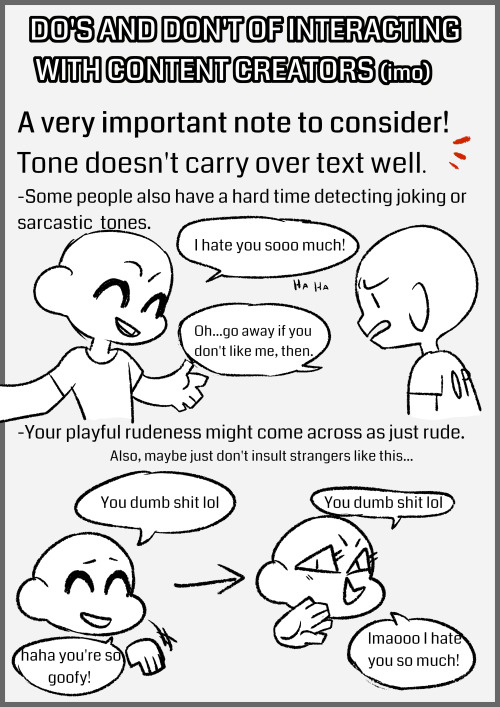
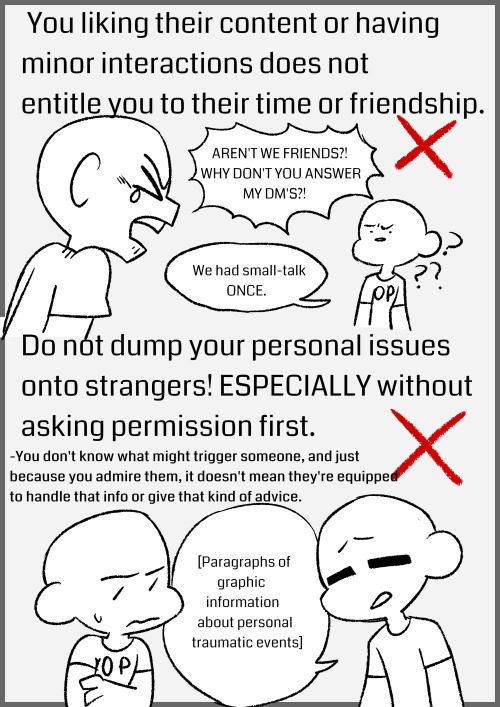
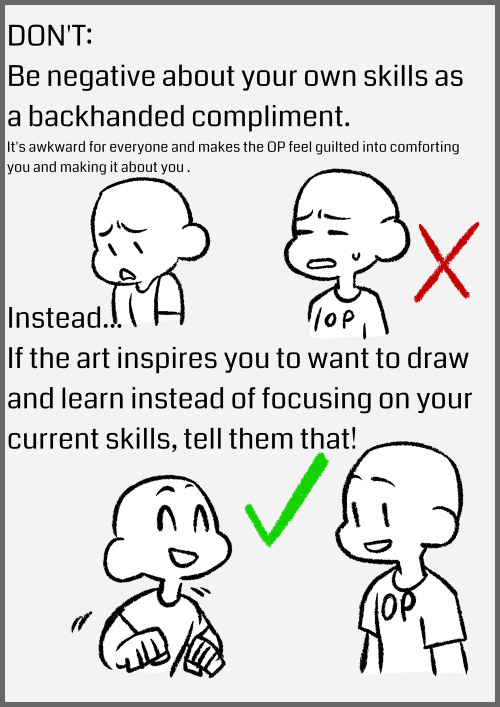
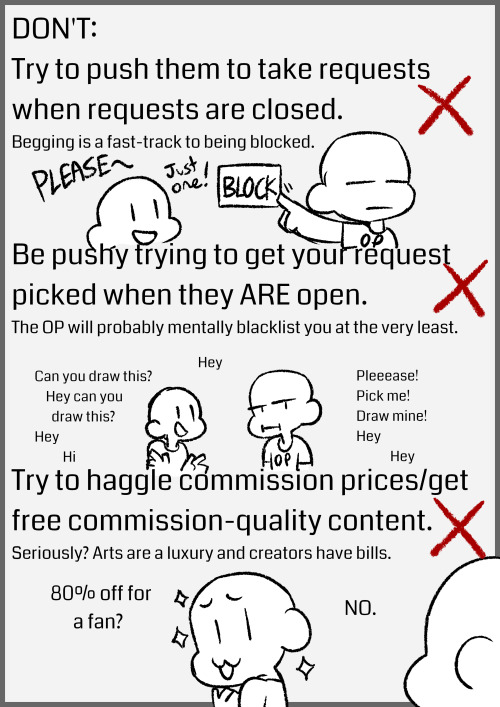
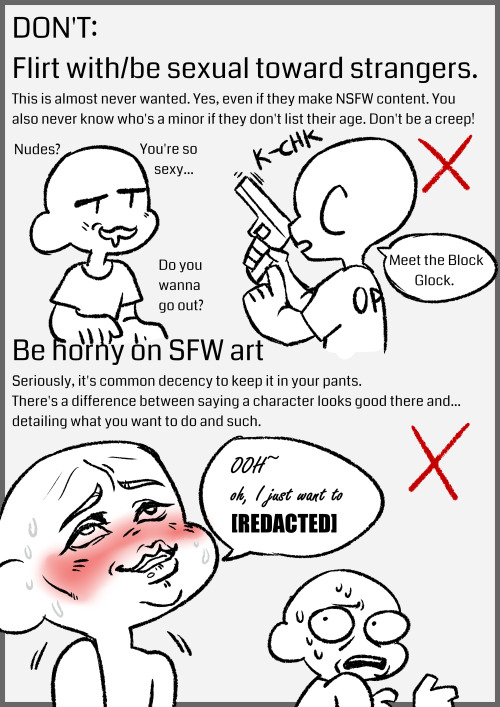
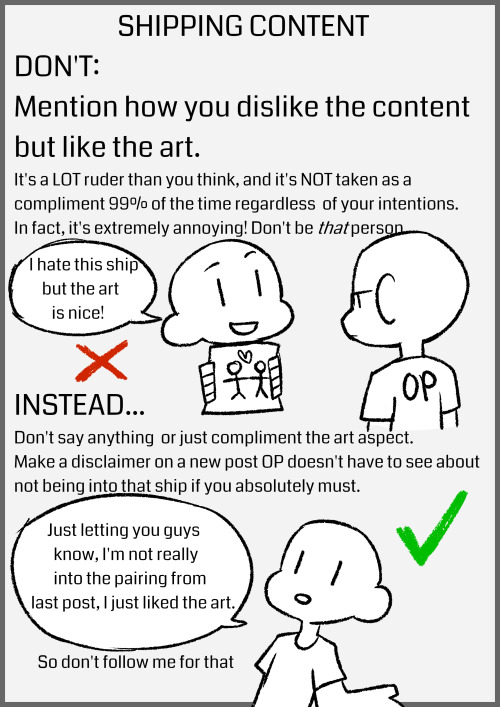
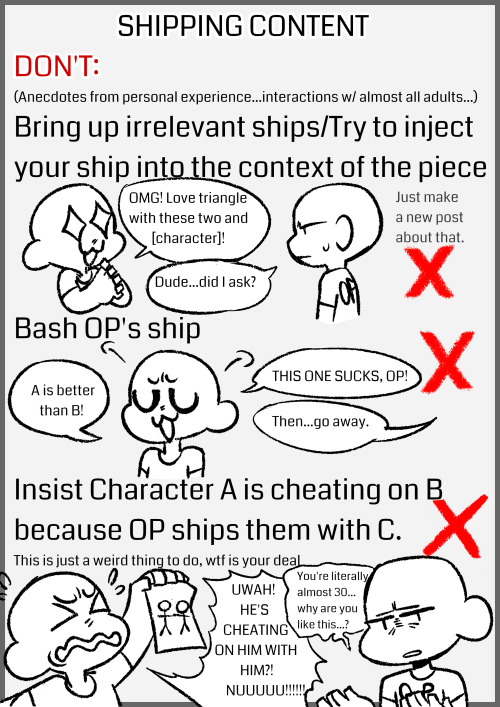
The Do’s & Don'ts of interacting w/ content creators, & other people you don’t know well mutually I slapped together for Twitter.
This ended up being more Don'ts than Dos but I feel like people need more help learning what NOT to say once they stray away from simple compliments and questions.
You know the longer that I work in customer service the more I think kids should not be allowed to work here. Not that some of them don't have great work ethic, hell I've had teenagers work better than some adults. It's more to do with customers they say the most vile things about you just for minor things. I Have even had several come in pissed just to use me as and my fellow coworkers as punching bags. It really drags on your mental health I can only imagine the kids going through puberty having to deal with these vile people with a hairline trigger it's gross.

[image description: a tweet by user @indigenousAI saying
“fun fact: as a DV survivor i cannot register to vote because doing so makes my address public. anyone who is fleeing or hiding from an abuser is automatically disenfranchised from the political process and this is a feature, not a bug”]
Literal definition of spyware:

Also From Microsoft’s own FAQ: "Note that Recall does not perform content moderation. It will not hide information such as passwords or financial account numbers. 🤡
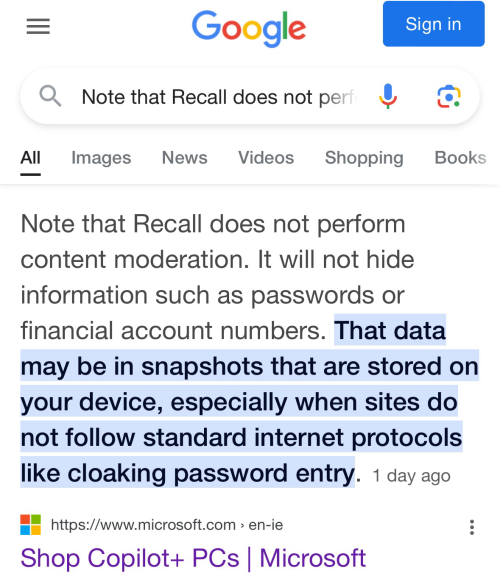
-
 cringeandcats liked this · 2 weeks ago
cringeandcats liked this · 2 weeks ago -
 starii-lins liked this · 3 weeks ago
starii-lins liked this · 3 weeks ago -
 ponytailx liked this · 1 month ago
ponytailx liked this · 1 month ago -
 theoverarchiver liked this · 1 month ago
theoverarchiver liked this · 1 month ago -
 fluffywuffle liked this · 1 month ago
fluffywuffle liked this · 1 month ago -
 sw337h34r7 reblogged this · 1 month ago
sw337h34r7 reblogged this · 1 month ago -
 sw337h34r7 liked this · 1 month ago
sw337h34r7 liked this · 1 month ago -
 nightowl343 reblogged this · 1 month ago
nightowl343 reblogged this · 1 month ago -
 some-random-fandom-chick reblogged this · 1 month ago
some-random-fandom-chick reblogged this · 1 month ago -
 some-random-fandom-chick liked this · 1 month ago
some-random-fandom-chick liked this · 1 month ago -
 littlefaefeather reblogged this · 1 month ago
littlefaefeather reblogged this · 1 month ago -
 angels-bythe-sea liked this · 2 months ago
angels-bythe-sea liked this · 2 months ago -
 stupiddykingqueer reblogged this · 2 months ago
stupiddykingqueer reblogged this · 2 months ago -
 aparticularbandit liked this · 3 months ago
aparticularbandit liked this · 3 months ago -
 butimnotasexyrussian reblogged this · 3 months ago
butimnotasexyrussian reblogged this · 3 months ago -
 ghost-does-whatever reblogged this · 3 months ago
ghost-does-whatever reblogged this · 3 months ago -
 ghost-does-whatever liked this · 3 months ago
ghost-does-whatever liked this · 3 months ago -
 anakinskywalkerisfave reblogged this · 3 months ago
anakinskywalkerisfave reblogged this · 3 months ago -
 21-starlight-cats liked this · 3 months ago
21-starlight-cats liked this · 3 months ago -
 jeidai liked this · 5 months ago
jeidai liked this · 5 months ago -
 jell-the-sparkled-one liked this · 6 months ago
jell-the-sparkled-one liked this · 6 months ago -
 bl00d-1n-wat3r liked this · 6 months ago
bl00d-1n-wat3r liked this · 6 months ago -
 klavierr liked this · 6 months ago
klavierr liked this · 6 months ago -
 feiofthefae liked this · 6 months ago
feiofthefae liked this · 6 months ago -
 happilysoangel liked this · 6 months ago
happilysoangel liked this · 6 months ago -
 cupist liked this · 6 months ago
cupist liked this · 6 months ago -
 lesthell21 liked this · 7 months ago
lesthell21 liked this · 7 months ago -
 a-love-poet-at-heart reblogged this · 7 months ago
a-love-poet-at-heart reblogged this · 7 months ago -
 gothphrodite liked this · 7 months ago
gothphrodite liked this · 7 months ago -
 adam-saw liked this · 7 months ago
adam-saw liked this · 7 months ago -
 curiouslilbird reblogged this · 7 months ago
curiouslilbird reblogged this · 7 months ago -
 thebonestructure liked this · 7 months ago
thebonestructure liked this · 7 months ago -
 snortoborto liked this · 7 months ago
snortoborto liked this · 7 months ago -
 jellycatslippers liked this · 7 months ago
jellycatslippers liked this · 7 months ago -
 magical-mousy reblogged this · 7 months ago
magical-mousy reblogged this · 7 months ago -
 magical-mousy liked this · 7 months ago
magical-mousy liked this · 7 months ago -
 belledxct reblogged this · 7 months ago
belledxct reblogged this · 7 months ago -
 birdshazamenthusiast liked this · 7 months ago
birdshazamenthusiast liked this · 7 months ago -
 sunspot-syzygy liked this · 7 months ago
sunspot-syzygy liked this · 7 months ago -
 cafedeamour liked this · 7 months ago
cafedeamour liked this · 7 months ago -
 dentos-wife reblogged this · 7 months ago
dentos-wife reblogged this · 7 months ago -
 pumpkin-hotchocolate reblogged this · 7 months ago
pumpkin-hotchocolate reblogged this · 7 months ago -
 buffmeister reblogged this · 7 months ago
buffmeister reblogged this · 7 months ago -
 riverisatrainwreckfr reblogged this · 7 months ago
riverisatrainwreckfr reblogged this · 7 months ago -
 blacktoneddsandd liked this · 8 months ago
blacktoneddsandd liked this · 8 months ago -
 queenofglitch liked this · 8 months ago
queenofglitch liked this · 8 months ago -
 actuallyanaliensstuff liked this · 8 months ago
actuallyanaliensstuff liked this · 8 months ago -
 the-flesh-is-willing reblogged this · 8 months ago
the-flesh-is-willing reblogged this · 8 months ago -
 pumpkin-hotchocolate reblogged this · 8 months ago
pumpkin-hotchocolate reblogged this · 8 months ago -
 radiocecil liked this · 8 months ago
radiocecil liked this · 8 months ago
